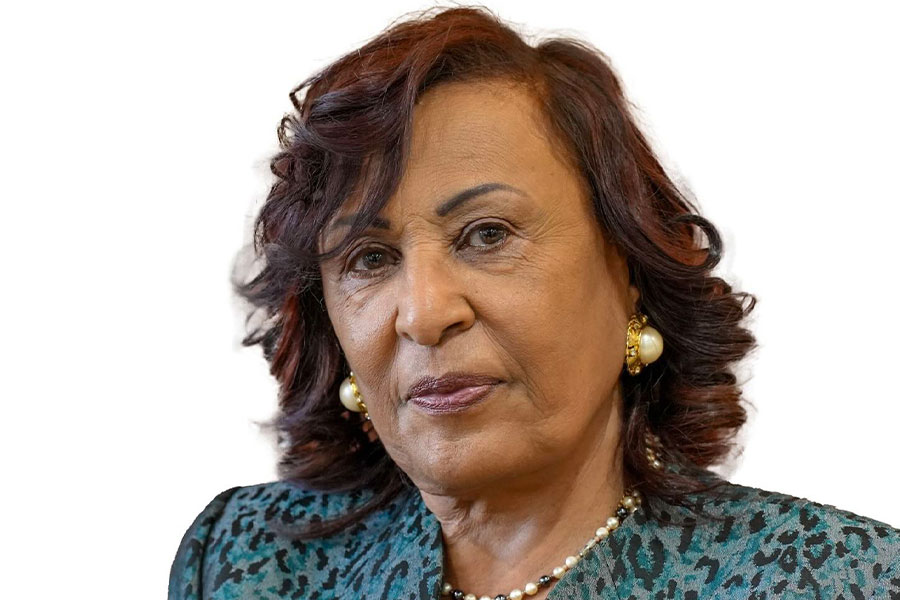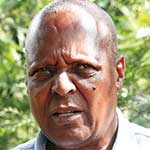
View From Arada | Dec 25,2021
Jul 10 , 2020
By Christian Tesfaye
Monday was a sad day. Hachalu Hundessa, a singer and songwriter as well as political activist, was shot dead, according to police. A father, a husband and one of the symbols that came to represent the movement that led to the change of administration in 2018, it was an unfortunate event to have happened to such a vibrant individual.
By virtue of his political activism, it was an event that was bound to be momentous in Ethiopia's politics, one of many in this past couple of years. Within a day of his passing, shops and offices closed, the movement of people and vehicles ceased and Addis Abeba came to a standstill on Tuesday. It was in part an expectation of what was inevitable - the response to the trauma that Hachalu's death caused to the movement he represented.
The result was demonstrations reminiscent of the first several months before and following Prime Minister Abiy Ahmed’s (PhD) rise to the premiership. Youth gathered in the city to make their voices heard. They were angry and forceful. It was the only way they felt they could express how momentous this event was, how it made them feel and how - whatever had led to the death of Hachalu – what had happened was unacceptable.
Following the reports of his passing, it was easy realising the futility of calling for sobriety and introspection. This could be asked of the political elite - which, as always, disappointed here too - but is much harder to ask of the many Ethiopians to whom the movement mattered. In the early period of his passing, it was evident that what had actually occurred would not matter that much. It was unlikely that this was not going to feel like an affront against the people themselves.
Their expression of anger and resentment at the loss of such a figure led to the lockdown of Addis Abeba. To businesses and people, this was a great deal of inconvenience. People could not go to offices, and those that had already made it out of their homes on Tuesday were stranded.
There is also the usual apprehension. Such emotionally charged protests meant to residents in Addis Abeba the possibility of violence: perhaps not one inspired by the protestors themselves but a consequence of the response it might lead to and the conflicts that may erupt as a result. It is an all too evident possibility in a country with a political history that is awash with violence. And in the end, there was distraction of property and the unfortunate loss of lives.
But what is still not evident is how such an emotionally charged issue will play out in the political arena, how much it will fuel partisanship in the long term and the form in which such trauma and the demonstrations that followed inspires contending parties within Ethiopia’s politics.
Tact is unheard of in the national discourse, and it was unavoidable that it would not be utilised here as well. And this is because of two kinds of people.
On one hand are those that will fail to understand the anger that the death of such a figure invokes in people associated with the movement he was considered to be a voice for. On the other are those who will be unable to consider the violence such anger and resentment leads to if it is allowed to be expressed without care. Such people should hold their piece, but there is virtually no chance of this. They will instead be the loudest in the coming weeks and months.
What we should instead strive for is to expend positive energy. Hachalu was a voice and a symbol of strength and resistance for many across the country. The expression of anger and frustration at his passing should be understood. The demand for accountability should be echoed firmly and consistently, not only by those associated with the movement that brought him to the public’s attention but by every Ethiopian who believes in justice.
In the same token, the emotion his passing invokes should not be weaponised for the purposes of scoring political points. This will only lead to a further devolvement of our current state. Few will benefit out of such an outcome. It is a zero-sum game that will leave many blind. If the nation is ever going to get past this, the end will not fill like instant victory. It will only be bittersweet, and we have to learn to live with this likelihood.
PUBLISHED ON
Jul 10,2020 [ VOL
21 , NO
1054]


View From Arada | Dec 25,2021

Radar | Feb 12,2022

Verbatim | May 31,2025

Commentaries | Nov 07,2020

Radar | Aug 22,2020

Sunday with Eden | Aug 16,2020

Sunday with Eden | Dec 19,2020

Sunday with Eden | Aug 01,2020

Verbatim | Nov 30,2019

Life Matters | Sep 17,2022

My Opinion | 132105 Views | Aug 14,2021

My Opinion | 128507 Views | Aug 21,2021

My Opinion | 126435 Views | Sep 10,2021

My Opinion | 124046 Views | Aug 07,2021





Dec 22 , 2024 . By TIZITA SHEWAFERAW
Charged with transforming colossal state-owned enterprises into modern and competitiv...

Aug 18 , 2024 . By AKSAH ITALO
Although predictable Yonas Zerihun's job in the ride-hailing service is not immune to...

Jul 28 , 2024 . By TIZITA SHEWAFERAW
Unhabitual, perhaps too many, Samuel Gebreyohannes, 38, used to occasionally enjoy a couple of beers at breakfast. However, he recently swit...

Jul 13 , 2024 . By AKSAH ITALO
Investors who rely on tractors, trucks, and field vehicles for commuting, transporting commodities, and f...

Jul 12 , 2025
Political leaders and their policy advisors often promise great leaps forward, yet th...

Jul 5 , 2025
Six years ago, Ethiopia was the darling of international liberal commentators. A year...

Jun 28 , 2025
Meseret Damtie, the assertive auditor general, has never been shy about naming names...

Jun 21 , 2025
A well-worn adage says, “Budget is not destiny, but it is direction.” Examining t...

Jul 13 , 2025 . By YITBAREK GETACHEW
The Addis Abeba City Revenue Bureau has introduced a new directive set to reshape how...

Jul 13 , 2025 . By BEZAWIT HULUAGER
Addis Abeba has approved a record 350 billion Br budget for the 2025/26 fiscal year,...

Jul 13 , 2025 . By RUTH BERHANU
The Addis Abeba Revenue Bureau has scrapped a value-added tax (VAT) on unprocessed ve...

Jul 13 , 2025 . By NAHOM AYELE
Federal lawmakers have finally brought closure to a protracted and contentious tax de...